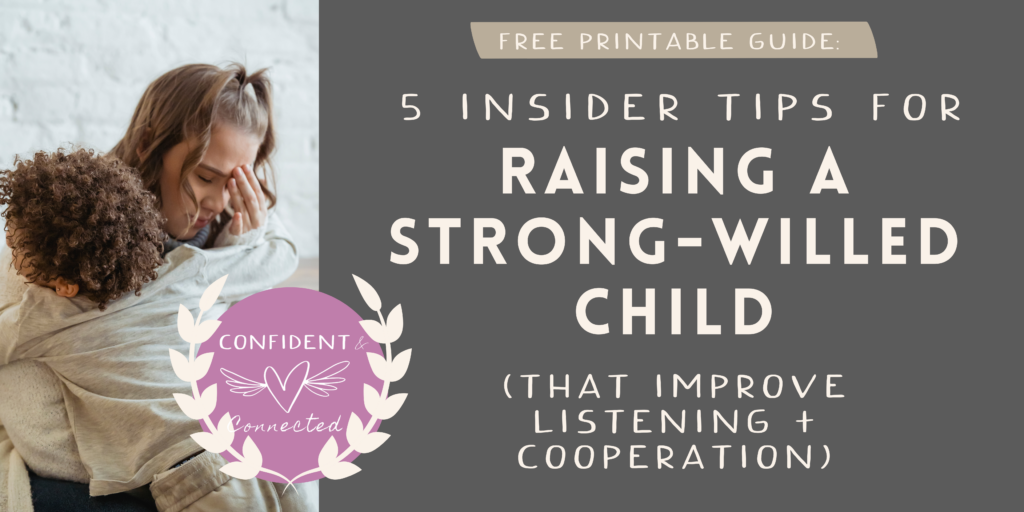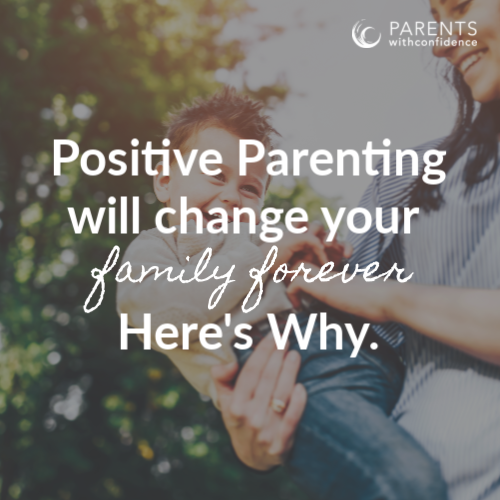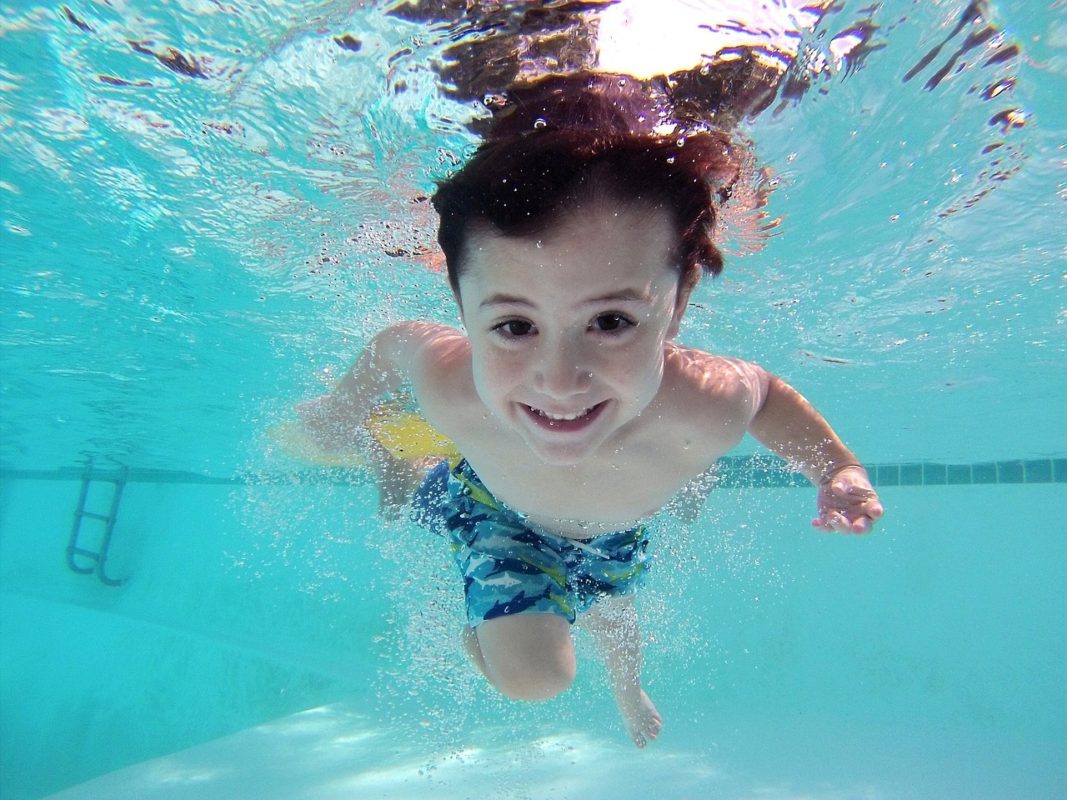Why Well-Meaning Dedicated Parents end up Having Kids that Talk Back and Don’t Listen
“There’s this big giant ‘elephant in the room’ of the parenting world…and I’m done going along with it being unacknowledged and unchallenged.
Every day this misconception makes many good parents (and good kids) feel frustrated, defeated, and hopeless.
The irony is never lost on me that it’s most often the parents trying the hardest, having the most difficult time getting the results they desire with their children, and are therefore reaching out for support.
These parents come into my therapy office after earnestly trying all the things to help lessen the talking back, arguing, and negativity in their home.
They’ve heard about the importance of consistency, and steadfastly enforced timeouts with their screaming toddler.
They’ve read about the importance of connection, and have made time to play with children and listen more, talk less.
They’ve researched consequences, have poured over sticker charts, and mapped out detailed consequences when they felt their child’s behavior warranted.

Many have been so desperate for a taste of compliance and cooperation in their home that they’ve tried old-school solutions offered by others, such as spanking or ‘showing them who is boss’ (which typically runs the gamut from yelling and threatening all the way to physical intimidation or abuse), even though they acknowledge they don’t feel good about these responses and they never ever help.
Here’s the problem with these approaches
Many of the toxic approaches we’ve historically defaulted to in an effort to discipline kids are rooted in lies and untruths.
Lies about what it means to be a good parent (that we need fear and intimidation to teach a child important lessons and must dominate and control in order to be respected) and what it means to be a good child.
We were sold the false belief that kids who didn’t respond easily to these approaches were BAD.
That kids who don’t immediately listen or say ‘no’ are disrespectful.
That kids who don’t obey blindly are defiant.
That kids who talk back to adults are manipulative.
That kids who refuse are rude.
That kids who meltdown or explode with emotion are brats.
We’ve been taught as adults, to view all of these actions through the black and white lens of ‘wrong’ and needing to be fixed.
Many children, by nature, are indeed amenable to being more easily shape-shifted and guided into the behavioral ‘metrics’ that fit these rigid behavior parameters.
A few swift and loud “Don’t talk back!”s, “You don’t need to cry”‘s and “You’d better listen or else ______” ‘s and poof, before you know it, the child is conforming to the adult’s idea of how they should act, and who they should be, instead of trusting and honoring their own thoughts and emotions.
Thanks to the wiring of our brains, fear is a reliably effective tool, (albeit not a healthy or productive one) when it comes to shaping behavior.
But just as many children by nature are amenable to easy behavioral change, some children by nature are not.
Try as you might you can’t control nature
When you enter into parenthood harboring the idea that a child is supposed to always listen, cooperate and obey your every command, it creates a lot of problems when mother nature has other ideas.
What around 15% of parents quickly find out, is that by NATURE some kids are wired to speak up, stand up and dig in.
These (around 1 in 6) parents then unknowingly find themselves in a dangerous trap.
They begin desperately striving towards some false ideal of what ‘a good child’ is, using any means necessary (threats, punishments, harsh tones, and WORSE), all the while they’re literally fighting AGAINST the way research tells us that their child naturally ticks.
It plays out like this:

Step one: The child digs in and stands their ground (a strong-willed child is always up for a good battle).
Step two: The parent digs in harder and doubles down (I’m the parent I have to ‘win’ to show who’s in charge here!).
Step three: Both parties refuse to back down and the battle of wills commences complete with yelling, threats, and punishment creating all around household chaos and frustration.
Even though they are often feeling exhausted, stuck, and guilty, families like this begin to view ‘going to battle’ with their young child as a regular and necessary part of everyday life.
The problem is, by nature, in a battle of parent vs child, often both sides come out losing.
Is winning the battle worth losing what actually matters?
If you ‘take on’ your spirited child, you may experience some fleeting ‘wins’ in the form of forced compliance in the short game, but you’ll always lose when it comes to the long game..
Losing your child’s trust (criticism, shame, and negativity causes children to stop viewing you as a safe place).
Losing your child’s sense of self and confidence (If children get the message they are ‘too much’ they will internalize that something is wrong with the essence/core of who they are).
Losing the chance to teach important life lessons (brain science shows children listen and learn best when they feel safe, heard, and validated).
Losing your child’s respect (children see when we’re not modeling the same respect, kindness, and integrity we expect from them).
Losing your child’s open heart and vulnerability (children shut down emotionally when their true self isn’t accepted).
The worst loss of all? Losing your sacred parent-child relationship.
🚩🚩 Stop getting triggered > Sign up for my live training for parents raising strong-willed kids Friday, Feb 3rd: How to respond most effectively to any behavior without losing your temper.

It’s a hard place to be as a parent.
I know because I’ve been there. Trying the same parenting approaches with my spirited daughter over and over with no long-term success.
Sometimes my ‘power’ or dominance was able to momentarily ‘win’ in certain situations, but that was always followed by a hard hit to our relationship and parent-child connection (and a lack of actual effective teaching and learning).

When we get real everyone wins
Why is it treated as some sort of secret that around 15% of kids are born with a strong-willed temperament?
Why are parents not told that these temperament and personality traits are biological and serve many great purposes in the world?
Why aren’t more school and health care systems being trained in modern research-based strategies for teaching and disciplining kids now that we actually know how our child’s brain works and how they learn best (as well as what’s emotionally harmful to them)?
Studies have shown:
- kids who have their own thoughts and opinions and aren’t afraid to express them are less at risk for going along with peers who may experiment with drugs and alcohol.
- Kids who were inclined to break the rules and push boundaries were more likely to become successful in their professional careers.
- Kids with a strong will are more likely to stand up against bullying and injustice and go against the crowd
On top of that, we’re made to believe the load of crap theory that ‘one parenting style fits all children’.
When you’re made to feel as though the very essence of who your child is, is BAD… how can you even begin to effectively work with them to teach them how to cooperate, listen and be respectful?
The short answer? You can’t, at least not effectively or healthily.
But here’s what I’ve realized in my 15 years of working with these strong and sensitive children as a Child Therapist, and 10 years of living under the same roof as 2 of them myself…
Every child is a GIFT and here in this world for a reason. Parenthood is a gift you only get one shot at, and one-size-fits-all parenting approaches are NOT going to cut it for a spirited persistent temperament.
There is a different path for you and your spirited child- full of connection and joy, and it starts with embracing your child just as they are in this very moment.
Your greatest power lies right now, in this very moment.
In this moment you can decide to embrace the characteristics mother nature blessed your spirited child with and help to further develop them.
In this moment you can see the strength and beauty in your child’s strong-willed behaviors.
In this moment you can let go of strategies and mindsets that don’t work for your unique child.
In this moment you can choose to put relationship and connection before power and control.
In this moment you can commit to exploring new paths of discipline and teaching that align with respect, collaboration, and science (instead of battle, war, and baseless assumptions).
In this moment you can choose.
Want help discovering a new emotionally healthy path with your strong-willed child?
🚩 Stop getting triggered > I’m hosting a free live training for parents raising strong-willed kids this Friday, Feb 3rd: How to respond most effectively to any behavior without losing your temper. Sign up here.
Want help discovering a parenting path to less battling and more bonding?


Other articles you’ll love:
75 Awesome Calm Down Strategies for Kids that Work
Strong-Willed Child Characteristics (and how to handle them)
Parenting an Angry Child? 10 Possible Reasons Why
How to Raise an Emotionally Intelligent Child that will Succeed in Life
The Best Way to Help a Child Deal with Anger Now (and throughout life)
It’s not ‘bad parenting’ You’re Raising a Strong-Willed Child







